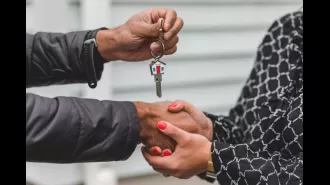Restrictions in New Caledonia to be lifted as state of emergency comes to an end.
"French President Macron lifted state of emergency in New Caledonia to promote political dialogue after deadly unrest and destruction."
May 27th 2024.

Today, French President Emmanuel Macron has made the decision to lift the state of emergency in the French Pacific territory of New Caledonia. This move comes after a period of unrest that resulted in seven fatalities and significant damage. According to the president's office, this decision is aimed at promoting political dialogue and allowing for peaceful resolution in the region.
In a statement released by his office, Macron has announced that the state of emergency will not be extended, and will officially end on Monday at 8pm in Paris, which is equivalent to 5am tomorrow in New Caledonia. The main goal of this decision is to facilitate discussions between the pro-independence movement FLNKS, the Kanak and Socialist National Liberation Front, and local leaders who have the authority to lift barricades and meet with protesters.
Macron has been vocal about his desire to see the removal of barricades put up by both sides of New Caledonia's political divide. On one side, there are the Indigenous Kanaks who are fighting for independence, and on the other, there are pro-Paris leaders who wish to maintain the status quo. The president believes that lifting the state of emergency is a necessary step in order to open up meaningful negotiations between these two groups.
This decision comes after Macron's visit to New Caledonia on Thursday, where he met with leaders from both sides to discuss the ongoing situation. The statement from his office also mentions that 480 additional gendarmes will be sent to the archipelago in the coming hours, bringing the total number of security reinforcements to over 3500. It is worth noting that among the seven fatalities in the recent unrest, two were gendarmes.
The state of emergency was initially put in place on May 15th for a minimum of 12 days, in order to provide law enforcement with more authority to address the violence. This includes the power to detain individuals who are considered a threat to public order, as well as increased abilities to conduct searches, confiscate weapons, and restrict movement. Those who violate these measures could face imprisonment.
The unrest in New Caledonia began as the French legislature in Paris debated amending the French constitution to make changes to voter lists in the region. In response, the leader of a pro-independence party has called on supporters to remain active and resist the Paris government's efforts to implement these electoral reforms. The Kanak and Socialist National Liberation Front has also urged Macron to withdraw the electoral reform bill if he truly wants to see an end to the crisis.
New Caledonia has a complicated history with France, becoming a French territory in 1853 under Emperor Napoleon III. After World War II, it was designated as an overseas territory, and in 1957, French citizenship was granted to all Kanaks. With the recent unrest and ongoing political tensions, it is clear that there is still much work to be done in order to achieve a peaceful and mutually beneficial relationship between New Caledonia and France.
In a statement released by his office, Macron has announced that the state of emergency will not be extended, and will officially end on Monday at 8pm in Paris, which is equivalent to 5am tomorrow in New Caledonia. The main goal of this decision is to facilitate discussions between the pro-independence movement FLNKS, the Kanak and Socialist National Liberation Front, and local leaders who have the authority to lift barricades and meet with protesters.
Macron has been vocal about his desire to see the removal of barricades put up by both sides of New Caledonia's political divide. On one side, there are the Indigenous Kanaks who are fighting for independence, and on the other, there are pro-Paris leaders who wish to maintain the status quo. The president believes that lifting the state of emergency is a necessary step in order to open up meaningful negotiations between these two groups.
This decision comes after Macron's visit to New Caledonia on Thursday, where he met with leaders from both sides to discuss the ongoing situation. The statement from his office also mentions that 480 additional gendarmes will be sent to the archipelago in the coming hours, bringing the total number of security reinforcements to over 3500. It is worth noting that among the seven fatalities in the recent unrest, two were gendarmes.
The state of emergency was initially put in place on May 15th for a minimum of 12 days, in order to provide law enforcement with more authority to address the violence. This includes the power to detain individuals who are considered a threat to public order, as well as increased abilities to conduct searches, confiscate weapons, and restrict movement. Those who violate these measures could face imprisonment.
The unrest in New Caledonia began as the French legislature in Paris debated amending the French constitution to make changes to voter lists in the region. In response, the leader of a pro-independence party has called on supporters to remain active and resist the Paris government's efforts to implement these electoral reforms. The Kanak and Socialist National Liberation Front has also urged Macron to withdraw the electoral reform bill if he truly wants to see an end to the crisis.
New Caledonia has a complicated history with France, becoming a French territory in 1853 under Emperor Napoleon III. After World War II, it was designated as an overseas territory, and in 1957, French citizenship was granted to all Kanaks. With the recent unrest and ongoing political tensions, it is clear that there is still much work to be done in order to achieve a peaceful and mutually beneficial relationship between New Caledonia and France.
[This article has been trending online recently and has been generated with AI. Your feed is customized.]
[Generative AI is experimental.]
0
0
Submit Comment





